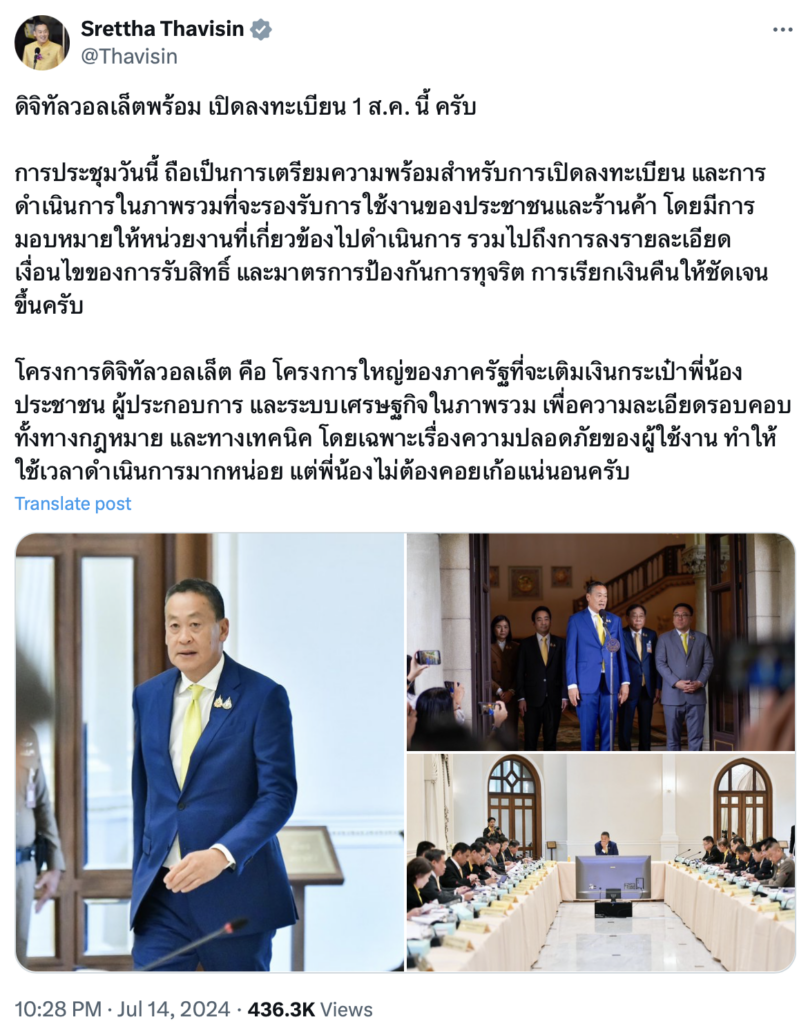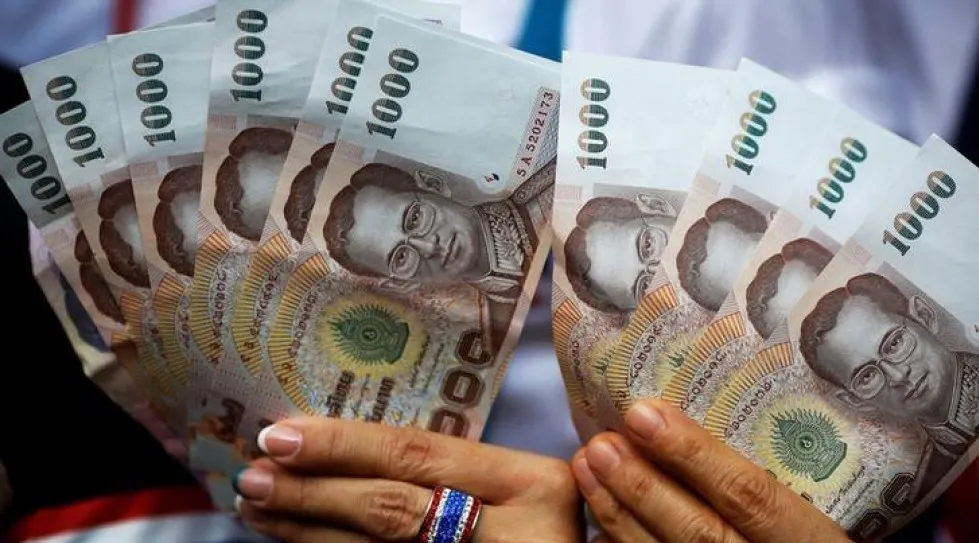Digital cash proposal enables lower-income Thais to buy more. Starting August 1, up to 45 million Thais will get 10,000 baht ($280) in digital currency.
The contentious proposal, which started as a campaign pledge, will enable Thais with lesser incomes to purchase more.
The plan to pay a social benefit in digital cash is moving forward, according to confirmation from Thailand’s Finance Minister Pichai Chunhavajira. On August 1, up to 45 million Thais will be qualified to receive 10,000 baht, or roughly $280, in digital currency. That amount is nearly two-thirds of the nation’s average monthly salary.
The Pheu Thai party, which prevailed in the previous year’s general election, made a campaign pledge about the Digital Wallet proposal. According to the AP, the $13.8 billion proposal will give Thais 16 years of age or older salaries under $23,000 and savings under $13,700 digital cash.
Digital currency as a boost to the economy
After the parliament authorized additional funding for the plan earlier in July, the finances for the plan will come from the national budget. Supporters of the plan assert that it will boost the country’s economy, which has been expanding at a rate of less than 2% per year for the past ten years.
The digital wallet software may be downloaded from the Google and Apple app stores and registered on the Thang Raj (Government Path) app, according to a Digital Government Development Agency representative. Individuals without smartphones can still apply for the benefit in person, albeit with certain restrictions.
Controllable digital cash
Although the Digital Wallet proposal was approved in January, it became contentious with the Pheu Thai party’s victory in August 2023. The use of digital currency is subject to many limitations, such as Know Your Customer authentication, which will keep out ofmates and individuals and companies with a history of financial mistreatment. The products that can be bought with digital money are likewise subject to limitations.

It is still being determined what technology powers the digital wallets. This year, the Bank of Thailand concluded a trial program to provide retail central bank digital currency (CBDCs). However, the bank currently has no plans to issue CBDCs. After winning the most recent election, Prime Minister Srettha Thavisin acquired a 15% share in X Spring, a Thai asset tokenization company.



